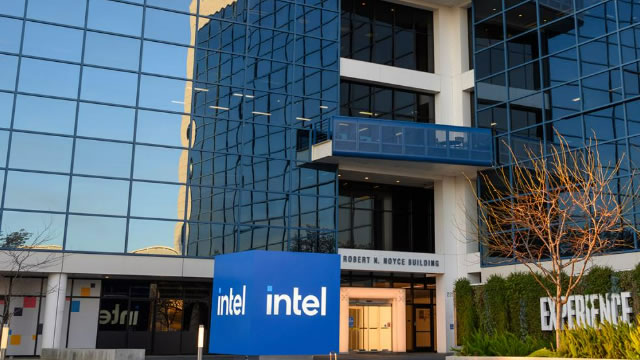Intel Faces Challenges in PC CPU Business: A Disappointing Rebound
Intel Corporation (INTC), the world’s largest chipmaker, has encountered several hurdles in its PC Central Processing Unit (CPU) business over the past year. One of the primary challenges has been the underwhelming rebound in PC demand following the post-pandemic slump.
Post-Pandemic PC Demand: A Disappointment
The global chip shortage and the economic downturn brought about by the COVID-19 pandemic led to a significant decline in PC sales in 2020. However, as the world began to recover, the expectation was that PC demand would bounce back strongly. Unfortunately, this has not been the case.
According to market research firm Gartner, worldwide PC shipments totaled 68.6 million units in Q3 2021, a 5.1% increase from the previous quarter. While this represents growth, it falls short of the double-digit percentage increases many analysts had predicted. IDC, another market research firm, reported an even more modest 2.3% year-over-year growth in Q3 2021.
Factors Contributing to the Disappointing Rebound
Several factors have contributed to the underwhelming PC demand rebound. One reason is that consumers have been holding off on buying new PCs due to the ongoing chip shortage. This shortage has led to supply constraints, making it difficult for PC manufacturers to meet demand.
Another factor is the resilience of used PCs. With many people working and studying from home, there has been a surge in demand for second-hand PCs. This has led to a thriving market for refurbished PCs, further reducing demand for new PCs.
Impact on Intel
Intel’s CPU business has been particularly affected by these challenges. The company’s PC CPU sales have been under pressure due to the weak PC market. In its Q3 2021 earnings report, Intel reported a 1% year-over-year decline in PC CPU revenue.
Intel’s data center business, on the other hand, has been performing well. The company’s data center revenue grew by 14% year-over-year in Q3 2021, driven by strong demand for its servers and other data center products.
Impact on Consumers and the World
The underwhelming PC demand rebound has implications for consumers and the world at large. For consumers, it means that they may have to wait longer to buy a new PC or pay a premium for one. For businesses, it could mean delays in upgrading their IT infrastructure.
At a global level, the weak PC demand rebound could have economic consequences. PCs are used in various industries, including education, healthcare, and finance. Weak PC demand could lead to slower digital transformation and productivity growth in these sectors.
Looking Ahead
The future of Intel’s PC CPU business remains uncertain. While the chip shortage is expected to ease in the coming months, it is unclear if this will lead to a significant increase in PC demand. Intel is investing in new technologies, such as its 7nm process and its Lakefield processor, to stay competitive in the CPU market.
- Intel faces challenges in its PC CPU business, including a disappointing rebound in PC demand.
- Post-pandemic PC demand has been weaker than expected, with growth falling short of analyst predictions.
- Several factors, including the chip shortage and the resilience of used PCs, have contributed to the weak PC demand rebound.
- Intel’s PC CPU sales have been under pressure, with the company reporting a 1% year-over-year decline in PC CPU revenue in Q3 2021.
- The underwhelming PC demand rebound has implications for consumers and the world, including delays in upgrading IT infrastructure and slower digital transformation and productivity growth.
- Intel is investing in new technologies to stay competitive in the CPU market.
Conclusion
Intel’s PC CPU business has faced multiple challenges over the past year, including a disappointing rebound in PC demand. While the chip shortage is expected to ease in the coming months, it is unclear if this will lead to a significant increase in PC demand. Consumers and businesses may continue to face delays in upgrading their IT infrastructure, while the global economy could experience slower digital transformation and productivity growth as a result.
Intel is investing in new technologies to stay competitive in the CPU market. However, the future of the PC market remains uncertain. As the world continues to grapple with the ongoing pandemic and its economic consequences, the demand for PCs may remain weak for some time to come.





